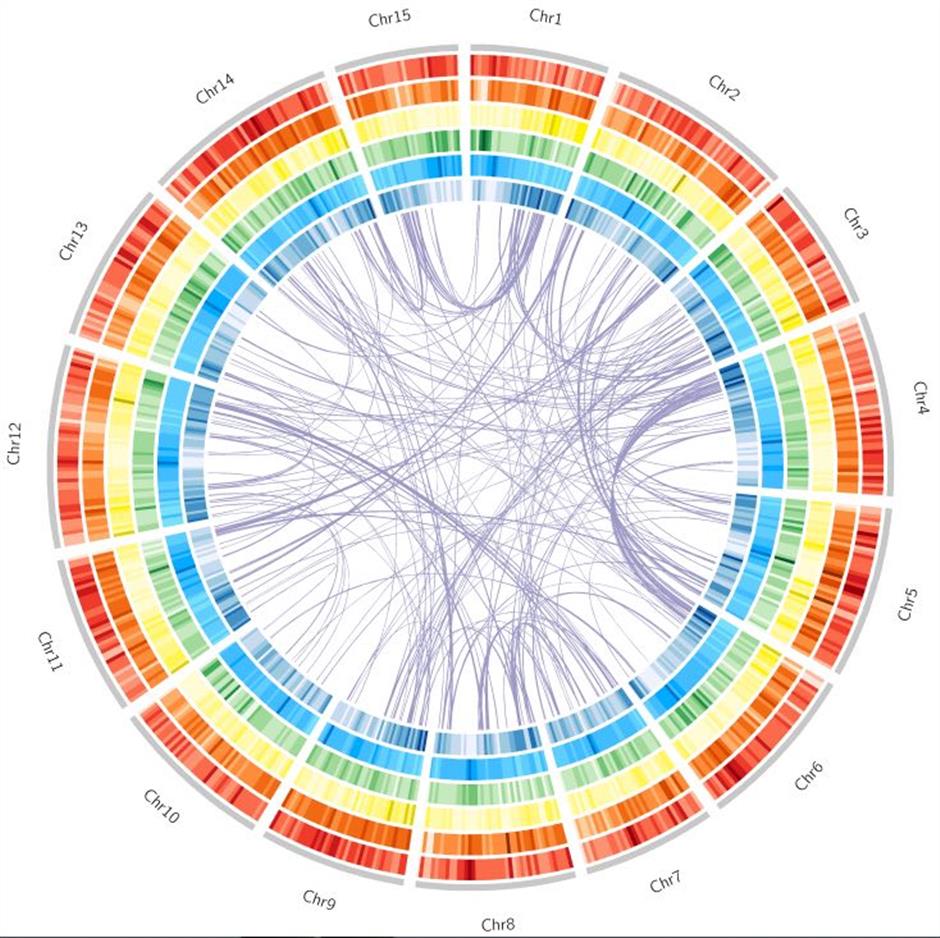Discovery on genome sequence of sweet potatoes
An international team of Chinese and German scientists has for the first time resolved the genome of sweet potatoes, shedding light on the food's evolutionary history, local researchers said on Tuesday.
The researchers are from institutes including Chenshan Botanical Garden, Shanghai Institute of Plant Physiology and Ecology, Max Planck Institute for Molecular Genetics and Max Planck Institute of Molecular Plant Physiology.
The paper was published on Monday in Nature Plants, a leading science journal.
The sweet potato is considered to have a great importance in food security. It is the fourth most significant crop in China and its global production reaches more than 100 million tons a year.
However the species’ complicated genome has previously restricted studies on sweet potatoes.
With a novel method developed in the study, the scientists have for the first time demonstrated that sweet potato's 30 chromosomes came from its diploid “ancestor” and the other 60 chromosomes from its tetraploid “ancestor,” the researchers said.
The modern cultivated sweet potato originated from a crossing between the two ancestors about 500,000 years ago following a whole genome duplication.
“With study on sweet potato’s genome, we hope we can recreate its evolution path in the lab one day,” said Dr. Yang Jun, a leading researcher of the study.
The finding not only revealed the mysterious origination of modern sweet potato, it will also help the researchers to utilize wild relatives of sweet potatoes, so as to develop new breeds to better survive in tough conditions.
















